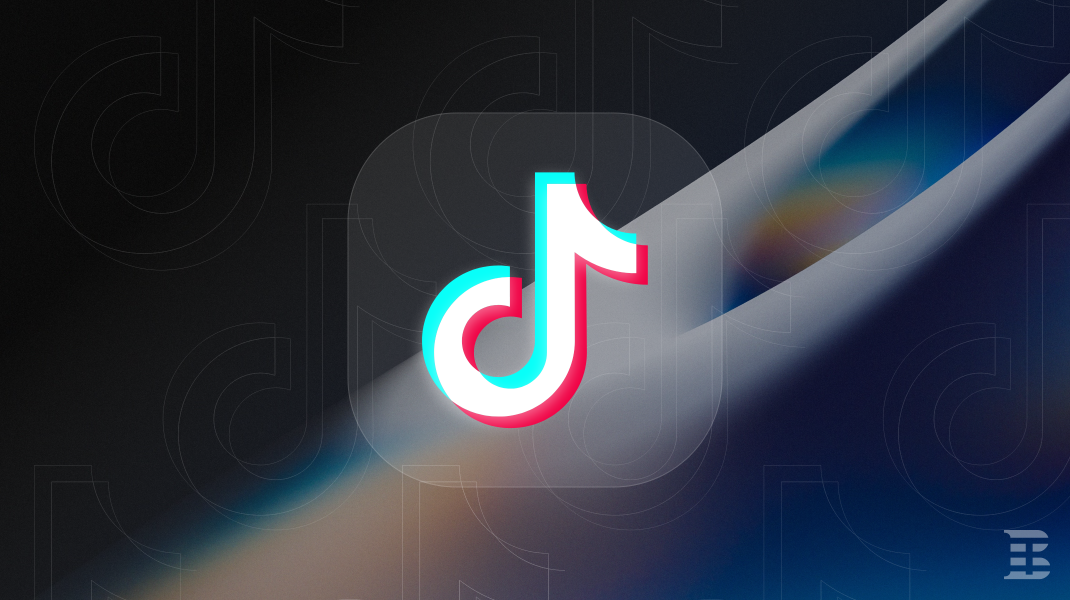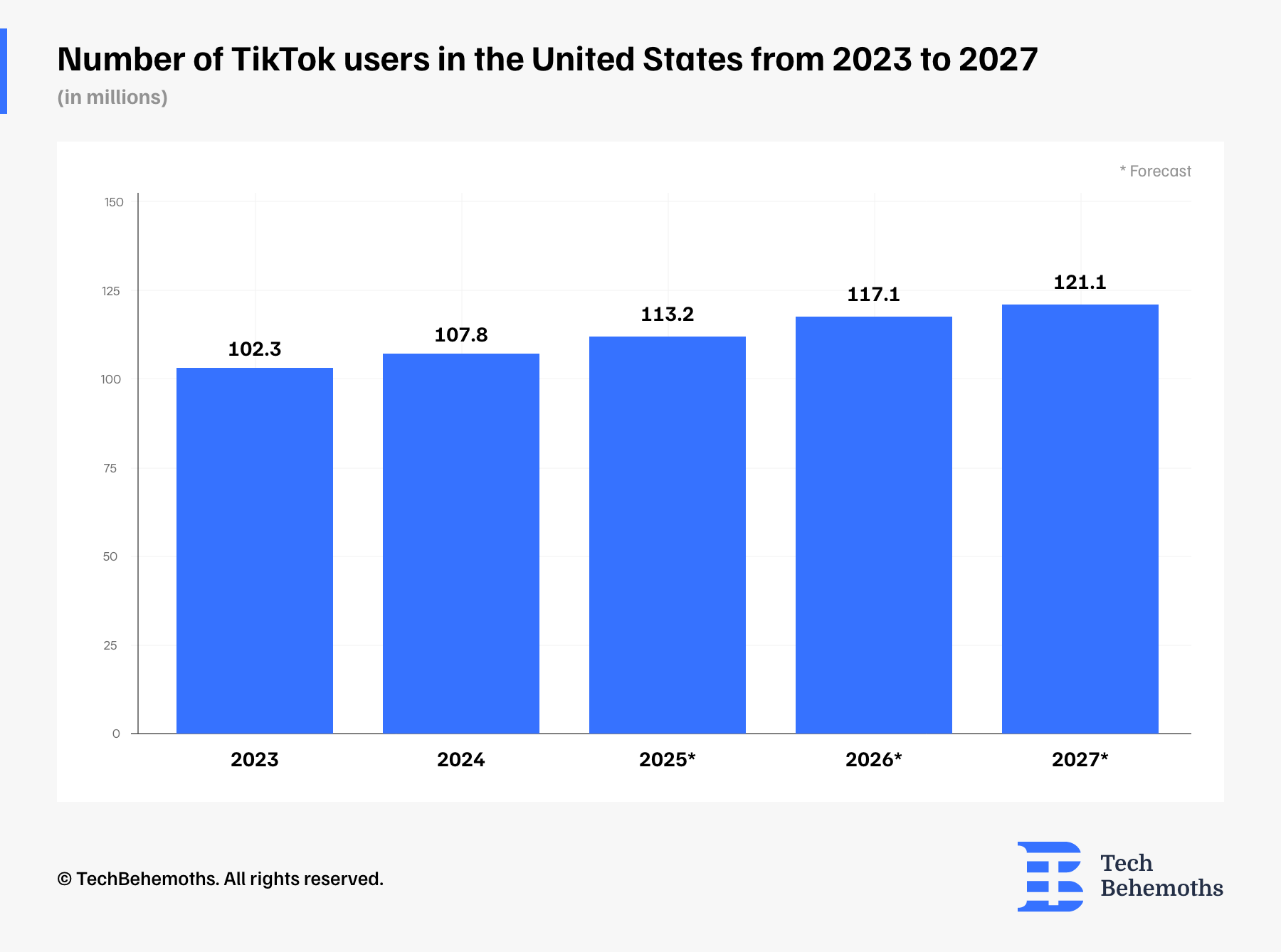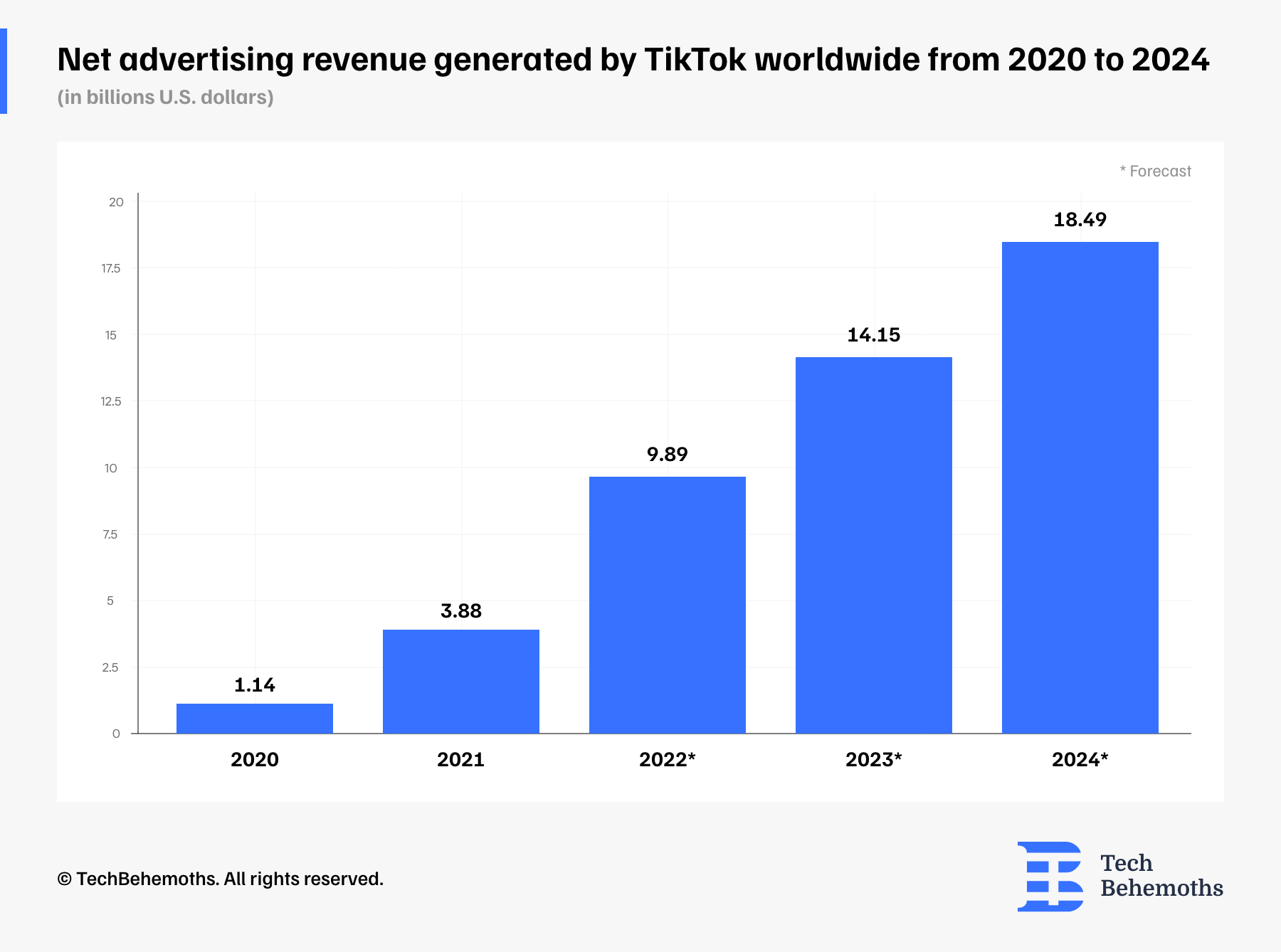What will happen if TikTok Gets Banned in The US

The recent move by the US government to ban TikTok, a popular social media platform owned by the Chinese company ByteDance, marks a significant escalation in the ongoing tech and geopolitical tensions between the United States and China. This decision is based on long-standing concerns about national security and data privacy, which have been worsened by the complex and often contentious relationship between the two countries.
In April 2024, President Joe Biden signed the Protecting Americans from Foreign Adversary Controlled Applications Act, which effectively mandates ByteDance to divest its ownership of TikTok or face a complete ban of the app in the United States. This legislation reflects bipartisan concerns over the potential for the Chinese government to access sensitive data of American users and to influence public opinion through the platform. The US government has argued that the data collected by TikTok could be used for espionage, and the app's algorithm could be manipulated to spread propaganda.
Where does the ban come from?
The backdrop of the TikTok ban in the United States is steeped in a complex mix of national security concerns, political maneuvers, and geopolitical tensions between the US and China.
The journey towards the TikTok ban began with growing bipartisan concerns over the potential misuse of user data by ByteDance, TikTok's Chinese parent company. In March 2024, the US House of Representatives passed the Protecting Americans from Foreign Adversary Controlled Applications Act with a substantial majority. This act mandates ByteDance to either divest its ownership of TikTok or face a complete ban of the app in the United States.
The main reason for wanting to ban TikTok is the concern that the Chinese Communist Party (CCP) could access TikTok’s extensive collection of user data, which includes personal information and user behavior analytics. Lawmakers argue that this data could be used for espionage or to manipulate public opinion through the app’s content recommendation algorithms. Despite TikTok's efforts to address these concerns through initiatives like Project Texas, which aims to store US user data on domestic servers, US authorities remain unconvinced of the app’s safety from Chinese government influence.
The TikTok ban is also a significant episode in the broader context of US-China geopolitical tensions. The ban is perceived by Beijing as part of a series of aggressive moves by Washington to stymie China’s technological and economic rise. This perception has been exacerbated by past actions, such as the forced divestiture of the gay dating app Grindr by its Chinese owner under US government pressure . The Chinese government views the potential sale or ban of TikTok as a capitulation to US pressure, which it is keen to avoid to maintain national dignity and economic sovereignty.
The legal situation about the TikTok ban is complex. ByteDance and TikTok have gone to court to challenge the ban, saying it goes against the First Amendment by limiting freedom of speech. Experts think the court battle could take a long time, which might delay the ban and lead to a close examination of the government's actions. This legal wrangling highlights the tension between national security concerns and constitutional rights, a recurring theme in the discourse on digital privacy and government surveillance.
The implications of the TikTok ban extend beyond US borders. Other countries are watching closely, and the US’s aggressive stance may prompt similar measures globally. Additionally, the ban raises questions about the future of digital privacy and the extent of government control over tech companies. Domestically, the ban could disrupt the lives of millions of American users who rely on TikTok for entertainment, education, and income, particularly affecting influencers and small businesses that use the platform for marketing .
Impact On the Tech Sector
The ban on TikTok will have a big impact on social media. TikTok is very popular worldwide, so if it's gone, social media will change a lot. Instagram Reels, YouTube Shorts, and Snapchat Spotlight are likely to experience a surge in user activity as content creators and consumers seek alternatives. This shift could accelerate the competition among these platforms to capture TikTok's displaced user base, leading to rapid innovation and the introduction of new features designed to attract and retain users.
The social media market could change a lot. For example, Instagram and YouTube might focus more on making short videos better. They could improve their algorithms and tools for making content to be more like TikTok. This could lead to a more fragmented social media environment where no single platform dominates the short-form video segment as TikTok did, new entrants might emerge, attempting to capitalize on the gap left by TikTok, although building a user base from scratch presents substantial challenges . For ByteDance, the parent company of TikTok, the implications of the ban are profound. ByteDance stands to lose access to one of its largest markets, which could significantly impact its revenue and market valuation.

The forced divestiture or outright ban of TikTok in the US would also require ByteDance to undergo complex legal and logistical maneuvers to comply with the new regulations . This could result in financial strain and operational disruptions as the company attempts to navigate the shifting regulatory landscape.
US-based tech companies, on the other hand, might find new opportunities in the wake of TikTok's exit. Companies like Facebook (Meta), Google (Alphabet), and Snapchat could see increased advertising revenues and user engagement on their respective platforms. However, they may also face heightened scrutiny regarding data privacy and security practices, as the TikTok ban underscores the growing concern over foreign ownership of social media platforms. The TikTok ban could act as a catalyst for regulatory changes within the tech industry. Policymakers might push for more stringent data privacy and security regulations to prevent similar concerns from arising with other platforms. This could lead to the implementation of new laws that require all social media companies, regardless of their origin, to adhere to stricter standards for data protection and transparency .
Furthermore, the tech industry may see a wave of innovation as companies strive to fill the gap left by TikTok. This innovation could manifest in the development of new features, improved algorithms, and enhanced user experiences designed to attract the vast user base that TikTok once held. The push for innovation might also extend to smaller tech startups, which could introduce novel solutions and niche platforms that cater to specific user needs and preferences .
Tik-Tok Ban from Consumer Perspective
The ban on TikTok will have a profound impact on the user experience and behavior of millions of American consumers. As one of the most popular social media apps, TikTok has created a unique space for creativity, entertainment, and social interaction. With its innovative short-form video format and sophisticated algorithm, TikTok has enabled users to discover content tailored to their interests in a seamless and engaging manner. The sudden absence of TikTok will disrupt this experience, forcing users to seek alternatives that may not fully replicate the platform's distinctive features.
For many users, particularly younger demographics who have integrated TikTok deeply into their daily routines, the ban represents a significant loss. They will have to adapt to new platforms like Instagram Reels, YouTube Shorts, or Snapchat Spotlight, which, while similar, do not offer the same community feel or level of engagement. This shift could lead to changes in content consumption patterns, with users potentially spending more time exploring different platforms to find comparable content. The ban will also have a significant impact on influencers and content creators who have built substantial followings and revenue streams on TikTok. For many creators, TikTok is not just a platform for sharing videos but a primary source of income and professional identity. The forced transition to other platforms means that creators will need to rebuild their audiences from scratch, which can be a time-consuming and uncertain process Influencers may face challenges in maintaining their engagement levels and income streams during this transition. They will need to adapt their content strategies to fit the formats and algorithms of new platforms, which may not offer the same reach or monetization opportunities as TikTok. Additionally, the loss of TikTok’s unique features, such as its highly effective discovery algorithm, could impact the visibility and growth potential of creators' content.
The TikTok ban raises broader issues about consumer trust and privacy in the digital age. The concerns that led to the ban—primarily around data privacy and the potential misuse of user data by foreign entities—highlight the increasing awareness and importance of data security among consumers. The ban may prompt users to be more cautious about the apps they use and the information they share online. Moreover, the ban underscores the need for clearer and stricter data privacy regulations. As consumers become more aware of the potential risks associated with digital platforms, there could be a growing demand for transparency and accountability from tech companies. This could lead to a push for new legislation aimed at protecting user data and ensuring that all social media platforms adhere to high standards of privacy and security.
Economic Consequences of TikTok Ban in the US
The economic consequences of a TikTok ban in the United States are substantial, given the platform's significant contributions to the economy. According to a report by Oxford Economics, TikTok generated $24.2 billion in economic activity in the US in 2023. This figure includes $14.7 billion in revenue for small and medium-sized businesses (SMBs) that utilized TikTok for marketing and advertising. These businesses have reported increased sales, valuable customer feedback, and audience growth as a direct result of their presence on TikTok. The platform also supports around 224,000 jobs across various sectors, with significant impacts in states like California, Texas, Florida, New York, and Illinois. The potential ban threatens these jobs and the overall economic vitality that TikTok fosters. Additionally, TikTok contributed approximately $5.3 billion in taxes to the US government in 2023, highlighting its role as a significant economic driver.

For ByteDance, the parent company of TikTok, the financial implications are profound. Losing access to the US market, one of its largest user bases, would result in a substantial loss of revenue and market valuation. ByteDance may face considerable financial strain as it navigates the regulatory and logistical challenges of a forced divestiture or complete ban.
Job market consequences
The ban could lead to significant job losses, particularly among those directly employed by TikTok and the broader creator economy. Over 7 million businesses in the US use TikTok, and the platform supports various roles, including marketing, content creation, and advertising. The displacement of these jobs could lead to increased unemployment and economic instability within the affected sectors. Content creators and influencers, many of whom rely on TikTok as their primary source of income, will also be adversely affected. They will need to transition to other platforms, which may not offer the same reach or monetization opportunities, potentially reducing their income and professional stability.
Long term economic effects
Beyond the immediate financial and employment impacts, the TikTok ban could have broader economic repercussions. The platform's role in fostering innovation and providing a unique space for creative expression and cultural exchange is significant. A ban risks stifling this creativity and limiting the diversity of digital content available to consumers. This could lead to a less dynamic and innovative digital landscape. Moreover, the ban could set a precedent for further restrictions on other foreign-owned digital platforms, potentially leading to a more fragmented and protectionist global digital economy. This could hinder international cooperation and the free flow of information and innovation
TikTok Stats and Facts in 2024
- Global Reach: TikTok has over 1.5 billion monthly active users and is expected to reach 1.8 billion by the end of 2024 (Business of Apps).
- Revenue Growth: TikTok generated $16.1 billion in revenue in 2023, a 67% increase year-on-year (Business of Apps).
- US Economic Impact: TikTok contributed $24.2 billion to the US GDP in 2023, supporting around 224,000 jobs (Metricool).
- Ad Revenue: TikTok's global ad revenue is projected to reach $17.2 billion in 2024 (Metricool).
- Daily Usage: Users spend an average of 53.8 minutes per day on TikTok (Wallaroo Media).
- Downloads: TikTok has been downloaded over 4 billion times globally (Business of Apps).
- Demographics: 53.4% of TikTok’s global users are female, and 46.6% are male (DataReportal).
- Top US States: The largest impacts in terms of economic activity from TikTok were in California, Texas, Florida, New York, and Illinois (MediaPost).
- User Engagement: 92% of global TikTok users take action after watching a video on the platform (Metricool).
- Advertising Reach: TikTok has an advertising reach of approximately 1.09 billion users (Omnicore Agency).
- Influencer Earnings: Top TikTok stars like Addison Rae and Charli D'Amelio earn millions, with Addison Rae making $5 million in a year (Wallaroo Media).
- Daily Opens: An average user opens TikTok 19 times per day (Omnicore Agency).
- Content Creation: The top 25% of US adults on TikTok create 98% of the public content (Metricool).
- Purchase Influence: 33% of TikTok users say they have purchased a product after seeing it advertised on the platform (Metricool).
- Advertising Cost: The average cost-per-click for TikTok ads is $0.22 (Metricool).
- E-commerce: Over 11% of all households in the US have made a purchase on TikTok Shop (Metricool).
- User Growth: TikTok’s user base saw a 1239.29% increase in the US between 2018 and 2023 (Backlinko).
- Video Length: TikTok recently increased the maximum video length from 3 minutes to 10 minutes (Wallaroo Media).
- Market Presence: TikTok is available in 154 countries and 75 languages (Omnicore Agency).
- Influencer Impact: Partnering with a TikTok influencer can boost a brand’s advertising view-through-rate by 193% (Metricool).
Final words
The potential ban on TikTok in the United States represents a significant turning point at the intersection of technology, national security, and economic policy. Rooted in longstanding geopolitical tensions between the US and China, the ban highlights deep concerns over data privacy, security, and the influence of foreign-owned digital platforms. While these concerns are not without merit, the implications of such a ban are far-reaching and complex.
From a technological perspective, the ban disrupts the social media landscape, driving users to alternative platforms and prompting rapid innovation and competition among tech companies. Major players like Instagram, YouTube, and Snapchat stand to gain new users, but they also face increased scrutiny regarding their data practices and security measures.
For consumers, the ban impacts user experience, alters content consumption patterns, and challenges influencers and content creators to adapt to new environments. The broader issues of data privacy and consumer trust are brought to the forefront, emphasizing the need for robust regulatory frameworks to protect user data and maintain trust in digital platforms.
Economically, the ban threatens substantial revenue losses, job displacement, and reduced innovation. TikTok's significant contributions to the US economy, including $24.2 billion in economic activity and support for 224,000 jobs, underscore the platform's role as a vital economic driver. The potential job losses and disruption to small and medium-sized businesses that rely on TikTok for marketing and customer engagement are significant concerns.